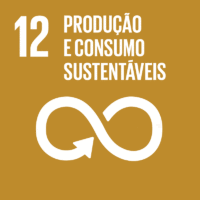Ciência_Iscte
Publicações
Descrição Detalhada da Publicação
Solidarity economy markets as “mobilizational commons”: re-signifying the market through the lens of cooperation
Título Revista
Community Development Journal
Ano (publicação definitiva)
2021
Língua
Inglês
País
Reino Unido
Mais Informação
Web of Science®
Scopus
Google Scholar
Esta publicação não está indexada no Overton
Abstract/Resumo
This article explores an understudied dimension of Solidarity Economy, which is how spaces of community development-oriented commercialization balance the embedment of their activities in cooperative norms and practices, while at the same time mobilizing support from pre-existing social structures and their institutions. The analysis is based on the case study of the Solidarity Economy markets organized by Esperança/Cooesperança, a community development project based in the town of Santa Maria, in the Brazilian state of Rio Grande do Sul. It engages the concept of “edge work”, from Social Permaculture Design, in framing Solidarity Economy markets as spaces that manifest Karl Polanyi’s vision of an “active society” in counter-movement to market commodification. This materializes as a reconciliation of cooperative practices with market mechanisms, based on trust-building and political mobilization, among different social sectors and agents, around direct producer-to-consumer exchanges. The analysis frames these markets as “mobilizational commons”: Sites of re-signification of market activity through the engagement of otherwise competing producers in experimenting, enacting and coordinating cooperative practices, as well as of consumers, social movements and the state in the re-framing economic activity over time. It concludes with an analysis of the political limitations to the “edge work” promoted by Esperança/Cooesperança, posed by electoral rotation and political socialization. The conclusions include suggestions for a research agenda on the impact of the “edge work” carried out by professionalized project managers of Solidarity Economy markets on different dimensions of community development.
Agradecimentos/Acknowledgements
I would like to express my gratitude for the comments made on previous drafts of
this article by Tom Henfrey, Audley Genus, Gil Pessanha Penha-Lopes, May East,
Stacco Troncoso, Benjamin Tejerina, Duncan Alastair Simpson and two anonymous
reviewers.
Palavras-chave
Social and solidarity economy,Public sphere,Brazil,Grassroots development,Social inclusion
Classificação Fields of Science and Technology
- Sociologia - Ciências Sociais
Registos de financiamentos
| Referência de financiamento | Entidade Financiadora |
|---|---|
| SFRH/BPD/94495/2013 | Fundação para a Ciência e a Tecnologia |
| UID/CPO/03122/2013 | Fundação para a Ciência e a Tecnologia |
Contribuições para os Objetivos do Desenvolvimento Sustentável das Nações Unidas
Com o objetivo de aumentar a investigação direcionada para o cumprimento dos Objetivos do Desenvolvimento Sustentável para 2030 das Nações Unidas, é disponibilizada no Ciência_Iscte a possibilidade de associação, quando aplicável, dos artigos científicos aos Objetivos do Desenvolvimento Sustentável. Estes são os Objetivos do Desenvolvimento Sustentável identificados pelo(s) autor(es) para esta publicação. Para uma informação detalhada dos Objetivos do Desenvolvimento Sustentável, clique aqui.

 English
English




